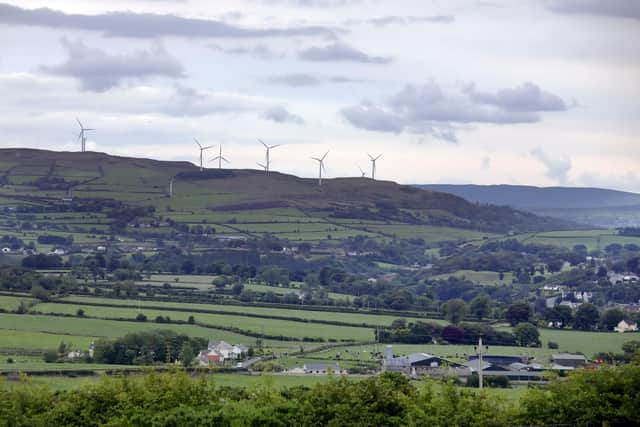Where is the support for small scale renewables in Northern Ireland?
and live on Freeview channel 276
As well as existing installations, renewables are becoming an integral part of many farm businesses going forward, crucially ensuring that money stays in the local economy.
Success of small scale renewable energy in NI
The land-based sector adoption of SSR has been a success up to 2017. The sector now produces enough renewable energy to power 150,000 homes and this was despite high costs and significant barriers which remain unresolved (see below).


Barriers
Advertisement
Advertisement
These barriers include planning policy, lack of grid capacity and government/regulatory policy. These issues have been raised repeatedly by the UFU and will form the basis of our written submission to the Northern Ireland Affairs Committee later this month, but commodity watch this week will focus on the lack of support for small scale renewables.
There is currently no support for small scale renewables in NI and this has been the case since 2017 and the 2030 deadline is only six years away - the clock is ticking.
DfE Consultation
The Department for the Economy (DfE) consulted on design considerations for a renewable electricity support scheme for NI. The proposals were disappointing as they set out a preferred option for ‘contracts for difference’, which would by-pass the land-based sector/UFU members wishing to get involved in small scale renewables.
This concluded in April 2023 and 12 months later there has been no further progress communicated from DfE to stakeholders.
2030 target
Advertisement
Advertisement
It is forecast that 3.9GW of renewable generation will need to be connected to the network to meet the target of 80% renewables by 2030, which is an additional 2.1GW of renewables connected to the grid, on top of the c.1.8GW currently connected. 0.25GW (or 250MW) of this will need to come from SSR’s/Microgeneration and hence the focus of the land-based sector.
The heavy lifting of meeting targets is focused on adopting 300,000 electric vehicles and 120,000 heat pumps in NI, each with their own negative aspects. In 2023, 34,000 newly licenced cars in NI, of which only 16% were EVs. Regarding heat pumps, concerns have been raised regarding the impact of the increasing demand on the grid, with spikes likely when turned on.
With this path wrought with potholes, it increases the relevance of the contribution of the land-based sector.
Uptake of Renewable Energy
The uptake of renewables in NI has stalled.
From July 2022 to June 2023, 45.5% of total electricity consumption in NI was generated from renewable sources in NI. This represents a decrease of 1.2% on the previous 12-month period. KPMG in their report 2023 ‘Accelerating Renewables in Northern Ireland’ stated that over the past 12 months NI has added only c.30MW of new renewable energy capacity to the system. ROI has managed to connect more than 20 times this volume over the same 12-month period, connecting 688MW in 2022 alone.
CASE Energy Summit 2023
Advertisement
Advertisement
A high profile NI Energy Summit was organised by CASE in Belfast, in June 2023. In the keynote address from the Head of the NI Civil Service, Dr Jayne Brady stated that if NI is to meet renewable energy targets, it needs to do better and step up to the challenges.
What could an effective NI SSR support scheme look like?
Unlike the NIRO, which was supply driven, any future incentives would be linked to demand. We need to have a market-based system which drives down costs. Take the correlation between wholesale electricity prices and small-scale wind. Incentives should be devised and calculated at industry level. One suggestion is that support could be for energy reduction or demonstrated energy efficiency and incentivised accordingly.
Republic of Ireland
RoI are pushing ahead with their own small-scale renewable electricity support scheme and DfE should be looking at the three schemes which would be relevant to our members:
- Small Scale Renewable Electricity Support Scheme (SRESS)
- Renewable Electricity Support Scheme (RESS)
- Micro-generation Support Scheme (MSS)
Summary
An effective future support package is needed for small scale renewables to help deliver our renewable and sustainable aspirations. It’s not about the decarbonisation of NI agriculture, rather it’s the role that NI agriculture can play in the decarbonisation of NI, yet the potential of small-scale renewables in the land sector is being ignored.